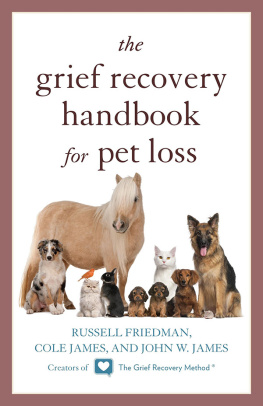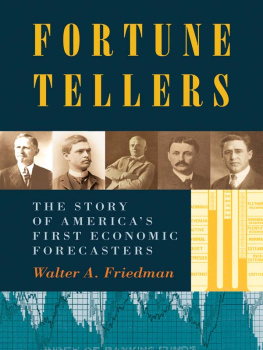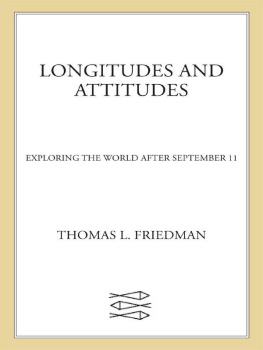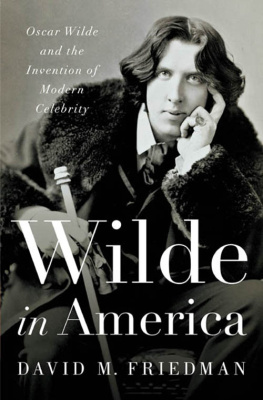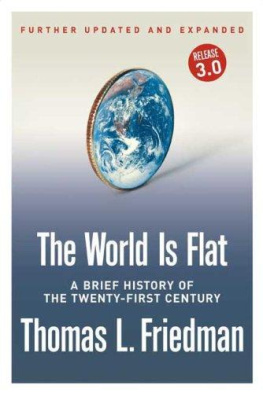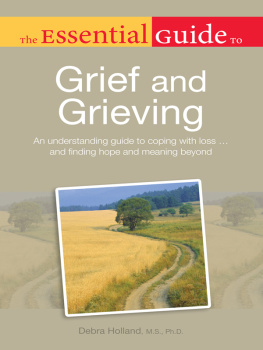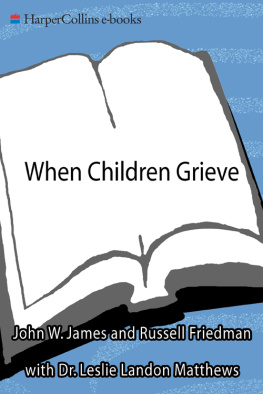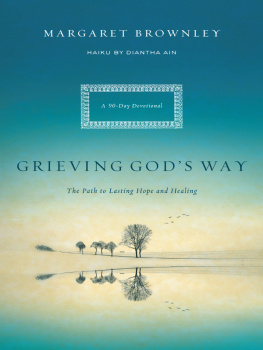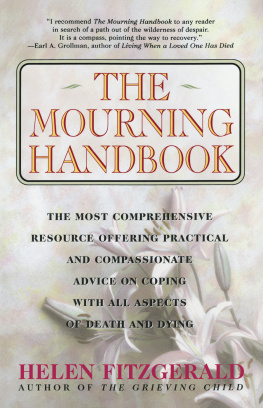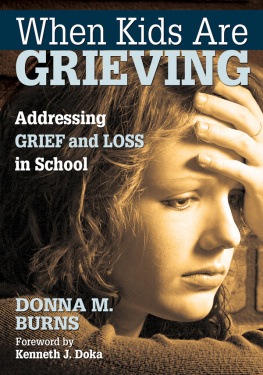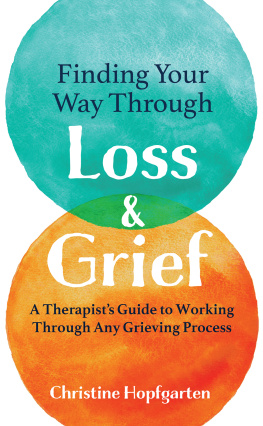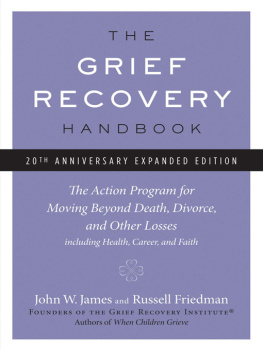Friedman - The Grief Recovery Handbook for Pet Loss
Here you can read online Friedman - The Grief Recovery Handbook for Pet Loss full text of the book (entire story) in english for free. Download pdf and epub, get meaning, cover and reviews about this ebook. year: 2014, publisher: BookBaby;Convert A Book, genre: Religion. Description of the work, (preface) as well as reviews are available. Best literature library LitArk.com created for fans of good reading and offers a wide selection of genres:
Romance novel
Science fiction
Adventure
Detective
Science
History
Home and family
Prose
Art
Politics
Computer
Non-fiction
Religion
Business
Children
Humor
Choose a favorite category and find really read worthwhile books. Enjoy immersion in the world of imagination, feel the emotions of the characters or learn something new for yourself, make an fascinating discovery.
The Grief Recovery Handbook for Pet Loss: summary, description and annotation
We offer to read an annotation, description, summary or preface (depends on what the author of the book "The Grief Recovery Handbook for Pet Loss" wrote himself). If you haven't found the necessary information about the book — write in the comments, we will try to find it.
A very specific guide to the actions that help grieving pet owners grieve and complete their relationship to the pain and unfinished emotional business caused by the death of a pet.
Friedman: author's other books
Who wrote The Grief Recovery Handbook for Pet Loss? Find out the surname, the name of the author of the book and a list of all author's works by series.
The Grief Recovery Handbook for Pet Loss — read online for free the complete book (whole text) full work
Below is the text of the book, divided by pages. System saving the place of the last page read, allows you to conveniently read the book "The Grief Recovery Handbook for Pet Loss" online for free, without having to search again every time where you left off. Put a bookmark, and you can go to the page where you finished reading at any time.
Font size:
Interval:
Bookmark:
the GRIEF RECOVERY
HANDBOOK for PET LOSS
Published by Taylor Trade Publishing
An imprint of The Rowman & Littlefield Publishing Group, Inc.
4501 Forbes Boulevard, Suite 200, Lanham, Maryland 20706
www.rowman.com
16 Carlisle Street, London W1D 3BT, United Kingdom
Distributed by NATIONAL BOOK NETWORK
Copyright 2014 by Russell Friedman, Cole James, and John W. James
All rights reserved. No part of this book may be reproduced in any form or by any electronic or mechanical means, including information storage and retrieval systems, without written permission from the publisher, except by a reviewer who may quote passages in a review.
British Library Cataloguing in Publication Information Available
Library of Congress Cataloging-in-Publication Data
Friedman, Russell, author.
The grief recovery handbook for pet loss / Russell Friedman, Cole James, and John W. James.
pages cm
ISBN 978-1-63076-014-4 (pbk. : alk. paper) 1. Pet loss. 2. PetsDeath. 3. Pet ownersPsychology. 4. BereavementPsychological aspects. 5. Adjustment (Psychology) 6. Human-animal relationships. I. James, Cole. II. James, John W., 1944 III. Title.
SF422.86.F75 2014
155.9'37dc23
2014023262
 The paper used in this publication meets the minimum requirements of American National Standard for Information SciencesPermanence of Paper for Printed Library Materials, ANSI/NISO Z39.48-1992.
The paper used in this publication meets the minimum requirements of American National Standard for Information SciencesPermanence of Paper for Printed Library Materials, ANSI/NISO Z39.48-1992.
Printed in the United States of America
Dedication
First, we dedicate this book to all the grieving pet owners
who have received and returned the unconditional love of their pets.
We also dedicate this book to all the organizations that work
tirelessly to help the animals with whom we share our world.
As this book helps you regain a sense of
well-being after the death of your pet,
we hope you will feel compelled to make a
donation to the animal charity of your choice.
If you dont have a favorite charity, please consider
donating to one thats near and dear to our hearts:
Equine Outreach of Bend, OR
www.equineoutreach.com
541-419-4842
CONTENTS
Millions of Pet Deaths Every Year
But Very Little Effective Help
T he death of pets affects people all over the world. In the United States alone it is estimated that there are more than 14 million pet deaths each year. Death of a pet is an obvious, heartbreaking loss. Pet loss can occur in many ways, including pets that run away or are surrendered due to financial reasons. These losses combined account for nearly 40 million new grievers every year. Given the dimension of the problem, youd think that there would be a tremendous number of resources available for those who have lost a beloved pet. But you would be wrong.
As you may have discovered, there is very little effective guidance for grieving pet owners. Yes, there are first-person books in which grieving pet owners describe their pain, sometimes in very poetic language. And yes, there are other books that provide some measure of comfort by helping the griever not feel so alone. And yes, again, there are some support groups where people can talk about the pain they feel in a safe nonjudgmental environment. But those books and groups tend to provide only short-term relief, not the kind of long-term completion of the grief caused by the death of your pet.
Compounding the problem is the fact that friendsand even familyoften do not understand or accept the intensity of the grief we feel when our pets die. That sad fact makes many pet grievers isolate from human contact for fear they will be judged.
We have written this book to give you effective guidance in dealing with the death of your pet(s), whether that happened recently or a long time ago. We want you to be able to achieve a sense of completion, rather than resigning yourself to living with pain.
Its almost impossible to determine the exact origin of the human-animal bond. It probably began as a mutually beneficial hunting partnership. But the issue of blending skills in order to survive has long been trumped by an even more powerful linkthe emotional bondthat ties us to our pets in ways that are sometimes hard to explain to those who just dont get it.
It may seem that dogs and cats are the focus of this book. But thats not entirely true. They are the central characters in this book because that reflects our personal experience to a large extent. But our emotional connections are not limited to furry canines or felines. Other body coverings may house the creatures we fall in love withfur, feathers, fins and scales, or shells.
The bottom line is the heart line between us and another entity, and the degree to which it opens our own hearts. This book is for anyone and everyone who shares or has shared part of their life with a mammal, bird, reptile, fish, amphibian, or even an invertebrate. That covers all of the animal groups, from the commonplace to the exotic.
Many of us grew up with pets, but not every child had that opportunity. For a variety of reasons, some people dont get a pet until later in life. No matter when or why a pet comes into our life, we all retain the potential to forge a powerful emotional alliance. Others write eloquently about that emotional bond. But that bond is not the primary topic of this book.
The real topic of this book is what happens to us when that bond is severed by death, or disappearance, or even when circumstances force us to rehome our pets and we never get to see them again. Ultimately, the purpose of this book is to help you deal with the grief caused by the physical ending of your relationship with your pet.
We are John W. James, Russell Friedman, and Cole James, and together we represent The Grief Recovery Institute. In the introductions to our other books, we mention that its unlikely that a person would wake up one morning and say, Grief, what a concept, I think Ill make it my lifes work. That is not how it happened for John or Russell. Coles story, as youll read, is a little bit different.
Here is a brief outline of our lives, the institute, and the evolution of The Grief Recovery Handbook and our other books and articles.
John W. James is the founder of The Grief Recovery Institute and the original creator of the principles and actions of the Grief Recovery Method. John did not choose the career of helping people deal with loss; it chose himin a very painful way. In 1977, John and his then-wife had a three-day-old son die. Reeling from the impact of the death of his son, and then from the divorce that followed a few months later, John was forced to deal with the grief that brought him to his knees.
Trapped in pain and unable to get helpful guidance from friends, family, or professionals, John looked for a book that would tell him what he could do to deal with the pain in his heart; but the only books he was able to find were first-person recitations of the pain other grieving people had experienced. John didnt need to read about anyone elses pain, he had enough of his own. What he needed was a book that could answer this question: What can I do about it? (This is the same question grieving pet owners ask us.)
John couldnt find a book that answered that question, because at that time no such book existed.
Johns Personal Recovery Created the Missing Book
Through trial and experimentation, John figured out a series of actions that helped him feel emotionally complete with his son who had died. It soon became obvious that his ability to help himself was valuable to others who were dealing with the death of children or other important people in their lives. John left his construction business and opened The Grief Recovery Institute. At that point, he realized that he could finally write the book hed never been able to findthe one that answers the question, What can I do about it?
Next pageFont size:
Interval:
Bookmark:
Similar books «The Grief Recovery Handbook for Pet Loss»
Look at similar books to The Grief Recovery Handbook for Pet Loss. We have selected literature similar in name and meaning in the hope of providing readers with more options to find new, interesting, not yet read works.
Discussion, reviews of the book The Grief Recovery Handbook for Pet Loss and just readers' own opinions. Leave your comments, write what you think about the work, its meaning or the main characters. Specify what exactly you liked and what you didn't like, and why you think so.

